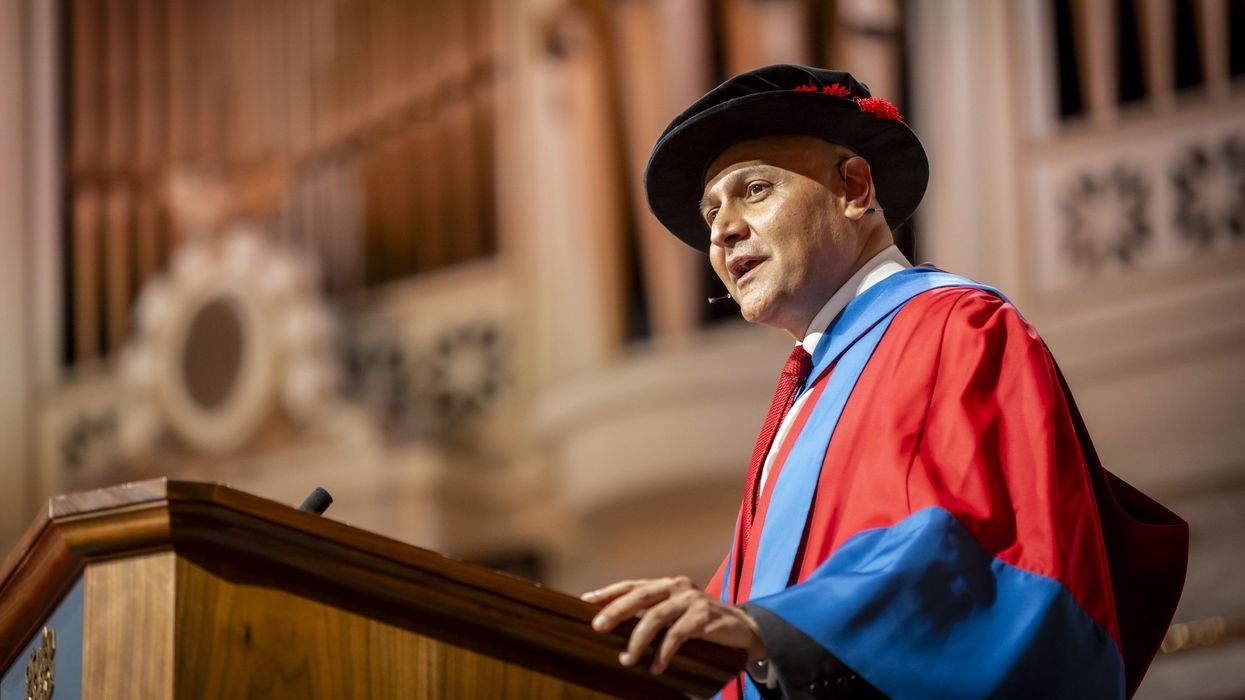BRITISH ASIAN businessman and philanthropist, Dr Nik Kotecha OBE DL, has received an honorary doctorate from the University of Leicester for his contribution to the society, a statement said.
He was awarded an honorary doctorate of science during the graduation ceremony held at De Montfort Hall on Thursday (20).
The entrepreneur came to Leicester as a child refugee with his family in 1972 to escape Idi Amin’s reign in Uganda.
Dr Kotecha, who grew up in Leicester, founded Morningside Pharmaceuticals from humble beginnings and built up a hugely successful career. He based his international pharmaceuticals business in Loughborough. Later, he started the Randal Charitable Foundation and made international contribution to pharmaceuticals, life sciences and innovation.
“I’m truly honoured and humbled to receive this honorary degree from the University of Leicester. As a young man and throughout my academic and entrepreneurial journey, I’ve long been an admirer of the university’s commitment to supporting and developing young people. I hope my story helps inspire the next generation of innovators and entrepreneurs to work hard and follow their dreams of making a positive difference to the world," he said while speaking after the ceremony.
“My advice to all graduating students is: as you step out into the world armed with your degrees, please remember that you possess a power, to positively shape our world."
He added, “You have the potential to ignite change, to challenge conventional wisdom, and to make a lasting positive impact on the lives of others. The world needs your ideas, your innovation, and your passion to tackle the pressing issues of our time.”
Dr Kotecha received a Leicestershire council grant during his school years which enabled him to start his further education in Newcastle.
He later went on to study for a PhD under Prof Steven Ley FRS at Imperial College London, and further doctorate work at the University of Cambridge.
His Morningside Pharmaceuticals started with a mission to provide high quality affordable and accessible medicines to the world. It became one of the leading UK suppliers of a wide range of medical supplies to International Aid Organisations, having exported to more than 120 countries.
He led the company for more than 30 years before divesting it in 2022. In 2017, Dr Kotecha and his wife Moni founded the Randal Charitable Foundation to save a million lives and significantly improve the quality of life for those in need.
Previously, he supported the establishment of the university’s Leicester Medical School.
“Nik has reaped exceptional achievements academically, in business and through his contributions of charity and philanthropy. For over 30 years he has utilised his passion for drug discovery, international trade and providing quality, affordable healthcare to forge a highly successful career, where he has drawn on this experience be a strong voice and ambassador for business, charitable organisations and establishing a charity that saves and improves lives," said Professor Nishan Canagarajah, president and vice-chancellor of the University of Leicester.
“Nik is an impressive role model to our graduates and the wider university community."
Dr Kotecha received the Pearl of Uganda Award 2022 at the Asian Business Awards. In 2017, his Morningside Pharmaceuticals received the Asian Business Award of the Year -Midlands and also received the Healthcare Business Award in the same year.
The company received the Fast Growth Business Award in 2015 at Asian Business Award Midlands.





